Printer Friendly version: Jordan, MN « No Crematory PDF
Open letter to Ballard-Sunder Funeral Home:
On behalf of the business owners, residents and children of the City of Jordan, we are concerned about the plan to operate a crematory at the Ballard-Sunder funeral home in Jordan. This facility will add a new, permanent, ongoing source of pollution which will immediately impact our community. In fact, the mere plan for this crematory has already impacted many of our lives. Directly across the street from the Ballard-Sunder funeral home is a daycare and families who have young children. Behind the property runs Sand Creek, a protected waterway which flows through wetlands into the Minnesota River. Within a short distance (500’) is the Mill Pond and Lagoon Park where people come to fish at the pier, swim and picnic with their families. Less than 1/50th of a teaspoon of mercury per 20-acre lake surface is enough to make the fish in it unsafe for human consumption. Blocks away from the crematory are important recreational facilities like Jordan’s own Mini-Met where outdoor baseball games and tournaments take place all summer long. Within walking distance are our public library, dance studio, karate studio, skateboarding park, hockey rink, skating rink, daycare centers, school bus stops and St Johns Church and School where children are present daily. Many of our community events bring the public to within feet of the funeral home such as Heimatfest and Parade, Jordan High School homecoming parade, the Jordan Valley Bike Tour, Pork in the Park, the Art Festival and St John’s Church Festival. We have hopes for Jordan to become a Hub for biking and trails, and our city has invested in planning to attract visitors to our charming small town, to enjoy trails that will run right past the crematory. All of these outdoor activities people attend with the assumption the air they breathe is safe. When the elements of a sheltered valley where crematory emissions will be carried by prevailing winds and combine with the common occurrence of air inversions it will mean these pollutants will be concentrated in the fallout on our homes and properties. Along with residential areas there are churches, schools, the food shelf, restaurants and other businesses in this sheltered valley. At the very least, a crematory would be considered by many to be nuisance. People would be unable to enjoy their properties and many may have to sell at a decreased value, which ultimately would lower the city’s property tax base. Simply put, the operation of a crematory at this location will hurt the community of Jordan as a whole. It amounts to an incompatible land use.
According to Jordan City Ordinance: § 90.002 NUISANCES.
(A) A nuisance shall mean any substance, matter, emission or thing which creates a dangerous or unhealthy condition or which threatens the public peace, health, safety, or sanitary condition of the city or which is offensive or has a blighting influence on the community and which is found upon, in, being discharged or flowing from any street, alley, highway, railroad right-of-way, vehicle, railroad car, water, excavation, building, erection, lot, grounds, or other property located within the city.
We have seen sufficient evidence in the form of scientific studies and expert opinions to warrant our concerns. Crematory emissions contain known toxins, including mercury from dental amalgam fillings, cadmium, lead, dioxins, furans, hydrogen chloride, nitrogen oxides and other pollutants at levels exceeding National Air Quality Guidelines and those put out by the State of Minnesota. Heavy metals and PCDD/Fs stand out because of their toxicity and capacity for bioaccumulation, which means chronic and ongoing potential risks for human health exist, even at the disputably low levels the industry represents. EPA has reportedly been talking to some of the larger volume crematories in MN about ways they can reduce their mercury emissions, because of the large number of protected watershed areas across the state.
We are aware and have been earnestly communicating to the officials in MN about current scientific findings which indicate levels of mercury from crematory emissions are eleven times higher than the data used by the EPA when they made the decision over ten years ago not to regulate crematories under the Clean Air Act, Solid Waste Incinerators category. This decision was based on the data from a single test at a single crematory. Whether or not a crematory is officially called a solid waste incinerator, it is still an incinerator and should not be allowed to operate in a C1 Neighborhood Business zone, near so many homes and children. Jordan’s own building inspector has classified this crematory as an incinerator.
There has not been one single scientific study that concludes crematory emissions are safe. The World Health Organization has stated “a safe level of mercury exposure … has never been established.” The data being provided by the crematory industry is out-dated, incorrect and amounts to a mix of marketing materials and a few selective tests done on new units as they were being installed. Testing was not done for the toxins of concern. Mercury is a known neurotoxin which affects developing fetuses and young children even at low levels of exposure. Dioxins are known to cause cancer and birth defects. Human health is compromised by significantly smaller concentrations of these toxins than ever imagined. In summary, there is enough scientific data to indicate the potential for harm to human health from living near a crematory is very real. There is good reason to expect in the future stricter regulations on crematory emissions are coming, but they are not in place yet. We are just not willing to allow this crematory to become established in Jordan, only to later learn our health and properties have been adversely impacted.
Since cremation rates are only expected to continue to rise and because Ballard-Sunder funeral homes serve two other communities besides Jordan, the estimated number of 50 cremations annually is not logical from a business standpoint. We believe the number will be significantly higher. A business owner has a right to expand and grow, but our constitution protects us as property owners from the negative impact of a land use that is too intense for the surrounding area. At this time we are asking all of our neighbors, along with government officials at every level to take the time to investigate all of the current information, so they make an informed decision as to what is right for this community and other communities like us in the future. We realize people will continue to want cremation to be available. Cremation services are something we believe should be available to those who choose that option. We have never been against cremation or the funeral industry, nor are we against this specific establishment. We had considered Ballard Sunder a good neighbor until now. The fact there are currently no regulations on crematory emissions deeply concerns us. Lack of regulations is NOT an endorsement of safety. We cannot wait until government agencies catch up to the science. This is a risk we are not willing to take with our families’ health and our financial future. Please find another location for the crematory located is a minimum of one half mile from any homes, school and protected wetlands located would be downwind. People will not only travel for cremation services, they will appreciate the funeral director and his establishment for showing concern about the health and safety of the community. Jordan Community Action Group can be reached by email at 12JCAG@gmail.com
Crematory outcry has Minnesota cities weighing risks
- Article by: HERÓN MÁRQUEZ ESTRADA , Star Tribune
- Updated: January 17, 2011 – 11:26 PM
As cremation rate rises, critics and backers debate potential for such toxic emissions as mercury.
http://www.startribune.com/local/south/114008714.html
Along with wastewater plants, halfway houses and homeless shelters, Minnesotans apparently have added crematories to the list of things that have neighbors howling “not in my back yard.”
But public outcry over plans to build crematories in at least two metro-area cities has raised the question of whether they’re the source of toxic emissions — or whether opponents are exaggerating the risk.
Last week, a plan to build a crematory in North St. Paul was pulled off the table after drawing complaints. And last month, residents in Jordan filed the second of two lawsuits to stop a proposed crematory from starting operations across the street from a day-care center downtown.
“There were concerns about emissions expressed by many,” North St. Paul City Council Member Jan Walczak said recently. “This issue is a little hotter than most.”
It only figures to grow hotter as cremations increase in popularity. Their number has been rising in Minnesota for 25 years running — to more than 17,000, according to the Minnesota Department of Health. Nearly half of the deaths in the state result in cremation.
The concern among opponents is that mercury in dental fillings and other metals in bodies will lead to toxic emissions and contamination of air and water.
“The things you cannot see are very toxic,” said Tia Severino of the Community Awareness Network in Georgia, who has been working to block crematories nationwide, including Jordan’s. “Jordan is one we are involved in because of the way the city is pushing people around.”
The issue has divided the tiny community, mirroring the growing number of people around the country questioning the safety of such establishments, which burn bodies at 1,800 degrees and then use filters to trap the emissions.
Adding fuel to the debate: The state Department of Health reversed course on the Jordan crematory, deciding Jan. 6 that the operation would need an environmental assessment before starting up.
That was in sharp contrast to the department’s decision last fall to allow the crematory to open without environmental assessment, which led to the filing of a suit in October.
The agency said it had received “new information recently” that made the department “reconsider its decision,” according to a letter to the state Environmental Quality Board by a worker at the state Mortuary Science section.
“MDH has received and continues to receive additional information about the situation that we feel needs to be reviewed,” said department spokesman Doug Schultz.
Schultz did not say what the additional information was or how it might affect the Jordan project or any of the state’s 50 existing crematories.
Anti-crematory activist Severino, who helped block a crematory from going into her town near Atlanta, says her group has provided the state and others with new research indicating that emissions from crematories are unsafe, especially the mercury.
But, as of now, the country has more than 2,000 crematories and the federal Environmental Protection Agency (EPA) has not ruled that their emissions are above danger levels.
“I believe that will be changing soon,” Severino said. “We do see it as a [local] problem and a national problem.”
The industry disputes opponents’ claims. John Ross, executive director of the Cremation Association of North America, said the country’s roughly 2,000 crematories are “heavily regulated” and that the EPA has not found the emissions to be dangerous, especially given the modern equipment that new crematories would be using.
He said about 1 million cremations are done each year in the United States and that the number is growing.
“There is not an emissions issue at all,” Ross said. “The measurements of mercury emissions by the EPA indicate that it is a very minimal amount.”
Growing concerns?
The dental fillings of the deceased are the source of the majority of mercury emissions from crematories. In Minnesota, the first rejection of a crematory happened in Roseville in 2001, according to the Health Department.
The mortuary sued the city but in 2004, a Ramsey County judge ruled in the city’s favor, without weighing in on the environmental issues raised.
From a regulatory standpoint, the issue is murky. There aren’t any state or national requirements for environmental review for crematories. A 2005 EPA report found that there were no known standards on crematorium emissions in North America and noted the need for further study about emissions from such facilities.
In Jordan, Shari Schmit, a pregnant mother of three, is one of those concerned.
“It’s basically in my back yard, across the street,” Schmit said recently. “We want to know if it is safe or not.”
A number of people plan to protest outside City Hall on Tuesday before the City Council meets. The meeting will be a showdown between the city’s mayor, who opposes the project, and the City Council, which appears set to strip him of his powers to appoint members to the city’s planning commission. It’s part of the fallout from the debate over the Ballard-Sunder crematory, which already has been approved by the City Council but could yet be derailed by the lawsuits brought by citizens.
Calls for comment from Mark Ballard, one of the owners of the funeral home, were not returned.
Jordan Mayor Pete Ewals, who opposed the project, said he thought the council majority acted too quickly and without sufficient information about the safety of emissions.
“I was arguing that we should take some time,” the mayor said. “They felt like they had all the facts.”
Jordan crematory forced to shut down
- Article by: HERÓN MÁRQUEZ ESTRADA , Star Tribune
- Updated: July 12, 2011 – 2:12 PM
http://www.startribune.com/local/south/125268809.html
A Scott County judge ruled the funeral home’s permit from the city illegally allowed cremation.
A controversial crematory in downtown Jordan has been shut down as a result of a court ruling that declared it illegal.
The Scott County Court decision last month states that the Jordan City Council erred when it determined that the opening of a crematory was an allowed zoning use at the Ballard-Sunder Funeral Home.
As a result, the city has closed the crematory until the City Council and the funeral home owner can decide what to do about it in the next few weeks.
City Administrator Ed Shukle said the City Council will be meeting with its attorney in the next two weeks. Funeral home owner Mark Ballard did not return a call seeking comment.
The closure is a major victory for a group of critics of the establishment, who filed lawsuits against the city and state when the crematory was approved.
“Obviously, we’re extremely pleased,” said Christa Oldsberg, one of the plaintiffs in the suit against the city. “It’s been a very long and stressful year.”
The crematory has been a source of ongoing debate and controversy in the community since last summer, when it was first proposed and brought before the City Council.
Opponents worried about its smell, the release of what they consider dangerous heavy metals during the cremation process, and the fact that it is across the street from a day care center.
They also claimed that the permit it was granted was illegal because it constituted a new business at the site and not just an extension of the funeral home operation.
What’s next?
The ruling by Scott County Judge Diane Hanson means the city must decide what to do next.
The City Council majority that approved the crematory said they believed that it was simply an extension of the funeral home business, and thus should be allowed under current zoning.
But the judge disagreed, ruling that the crematory is fundamentally a new business and should not have been given a conditional use permit.
Jordan Mayor Pete Ewals, who opposed the crematory location, said current zoning laws do not allow for a crematory in that downtown area.
Ewals said he is not sure what the city or the funeral home will do. He said the city cannot change the zoning laws now to accommodate the crematory because it would be considered spot zoning, which he said is illegal.
“I guess I’m not surprised” at the ruling, Ewals said. “When I looked at what we had done, I thought we blew it.”
A city divided
The issue not only has divided the town, it also has divided the City Council, and the crematory became a regular topic on the council agenda, even when there was nothing formal to discuss.
The rancor only increased in the spring when the funeral home began operating the crematory. Opponents wrote letters to the editor of a local newspaper, picketed at the establishment and called police to complain about the noise and the smell.
Things got so heated, and so many calls were lodged against the crematory, that police took the unusual step of no longer responding to calls complaining about the funeral home.
Instead, Police Chief Robert Malz advised residents that complaints would only be taken in writing. Residents had the option of dropping off their complaints at the police department or mailing them in.
“The reports of noise, smells, sickness and picketers have been well documented,” Malz said in a letter to residents. “A point has been reached where it is fruitless for the police department to continue to expend resources addressing repeat complaints.”
Order Granting Summary Judgment and Judgment for Plaintiffs
Crematory dispute divides Jordan
- Article by: HERÓN MÁRQUEZ ESTRADA , Star Tribune
- Updated: July 28, 2011 – 10:12 PM
Despite a court ruling that the funeral home has no legal permit, the owner continues to operate.
http://www.startribune.com/local/south/126368913.html
When the Jordan City Council met in mid-July, Mayor Pete Ewals was not present, even though the council was going to be talking about a controversial crematory that he’s adamantly opposed.
The reason for his absence: Earlier that day he had been served with a restraining order by the crematory’s owner for allegedly assaulting him a few days before at a protest.
In fact, according to Ewals’ lawyer, the mayor also will not be at next Monday night’s meeting because of fears he would be violating the restraining order.
“We believe this is completely politically motivated,” attorney Marsh Halberg said. “[The owner] is using the legal system for a political gain. It’s an abuse of the process.” Ewals denies assaulting the man.
The protest, alleged assault and restraining order are the latest twists in a battle over the Ballard funeral home, which opened its Reflections crematory a few months ago in downtown Jordan, across the street from a child care center.
Opponents want it moved out of town, fearful that potential emissions of mercury and other heavy metals are dangerous. The business owner and a majority of the City Council disagree. The nearly year-long fight has divided the small Scott County community, where people are hurling accusations of corruption, intimidation and lying.
“This can’t go on forever,” said Michelle Bisek, who owns the day care center across the street. “But the damage this has done to relationships between people in this town will last forever. I love my house and the friends I have made … but now I just want out of this town.”
The July 14 protest came shortly after a Scott County judge sided with opponents and ruled that the crematory had been issued an operating permit illegally. Instead of closing, the crematory and its owner, Mark Ballard, have continued incinerating bodies without a valid use permit.
Meanwhile, the city of Jordan has decided to appeal the judge’s ruling, allow the crematory to keep operating without a permit, issue no citations and look into rewriting its ordinances to allow the crematory to stay.
“In my opinion, the decision to appeal the district court judgment … is a waste of taxpayer money,” said Thom Boncher, the only City Council member to vote no on the matter. “The decision to not enforce the zoning code … is a breach of public responsibility.”
None of the pro-crematory council members is talking, citing pending litigation.
Police Chief Bob Malz said he has been told by prosecutors that he cannot shut down the crematory, make arrests or issue citations over its continued operation because it is a civil and not a criminal matter. Malz in June also took the unusual step of no longer having officers respond to complaints about the crematory.
City looking at options
The council’s decision two weeks ago has infuriated opponents, who had successfully sued the city and won over the issuance of a conditional use permit last year.
“I was hoping the court decision would be the end of this,” said Bisek, one of the plaintiffs who sued the city.
City officials said that the only comment they have on the judge’s order is that they are appealing it and that the council will take up the matter on Monday.
City Administrator Ed Shukle and other city officials said not closing or citing the crematory is a financial decision because it would cost the city thousands of dollars to fight Ballard in court. Ballard doesn’t believe he needs an additional permit to operate a crematory at a funeral home, city officials said, so he’s seen as likely to sue if the city tries to shut him down.
Ballard did not return phone calls seeking comment.
Stuck in the middle
“The city is kind of in the middle,” said Paul Merwin, the attorney for the city. “Cities make enforcement decisions all the time based on priorities and budgeting of taxpayer dollars. Enforcement action in this case would involve getting a court order. The city would have to bring a lawsuit and incur significant legal fees.”
Merwin said the “simplest example” is ticketing cars for speeding. He notes that not all people who speed are caught. “The city could choose to hire additional police and put more patrol cars on the roads, but that costs money and staff time,” he said.
But in this case, it is more analogous to a police officer seeing someone speeding and choosing not to stop them.
The state Department of Health, which issues operating licenses for crematories and funeral homes, is investigating the matter, but it will likely wait until the city’s appeal is heard before deciding what to do, said Darcy Miner, director of the compliance monitoring division.
There are no state or national requirements for environmental review for crematories. A 2005 EPA report found that there were no known standards on crematorium emissions in North America and noted the need for further study. As of now, the country has more than 2,000 crematories, and the federal Environmental Protection Agency has not ruled that their emissions are above danger levels.
But the crematory still needs an operating permit, and the mayor’s alleged assault on Ballard happened when opponents went to the crematory to ask him why he was running the equipment after the court ruled against him.
Chief Malz said that officers knocked on the door of the funeral home to talk with Ballard but that he did not come out.
When he did leave, about 1 a.m., he was confronted by the mayor and others as he tried to drive away, according to the restraining order, granted July 18.
Ballard, in his affidavit, says he was “verbally and physically assaulted” by Mayor Ewals.
“He had his head in my vehicle and was yelling at me and chasing me,” Ballard wrote. “I am afraid to be at my business alone. I also have employees who are afraid to be alone.”
The case was reported to the Jordan police but is being investigated by the Scott County Sheriff’s Office to avoid a conflict of interest, Malz said.
“I think that once the facts and the truth comes out, those allegations will be dropped,” said Christa Oldsberg, another plaintiff in the suit and a member of the Jordan Community Action Group, which is opposed to the crematory. “I think that the restraining order is uncalled for and ridiculous.”
Jordan faces a claim of ‘spot’ zoning
- Article by: HERÓN MÁRQUEZ ESTRADA , Star Tribune
- Updated: October 1, 2011 – 9:30 PM
http://www.startribune.com/local/south/130921873.html
Opponents say the City Council is unfairly helping a downtown crematory stay in business.
A smoldering controversy over a crematory in Jordan is raising questions from opponents about whether the city is engaging in illegal tactics to allow the facility to operate.
The accusation is that the city is using “spot” zoning, defined as creating an island by singling out a parcel for special privileges not consistent with surrounding uses. The practice is illegal in Minnesota.
The city amended its zoning code this summer to keep the crematory from closing down after a Scott County judge ruled that its use permit was illegal.
Last year a divided Jordan City Council granted a permit to the Ballard-Sunder Funeral Home for a crematory. Opponents, worried about what they said would be toxic emissions from a facility located right downtown, filed suit in Scott County, alleging that the crematory was not permitted under the area’s existing zoning regulations.
A judge agreed, ruling the permit was illegal because it was considered a new business and thus not in compliance with zoning laws. However, the judge did suggest that the city could change the definition of what a funeral home and crematory are, thus making a crematory a permissible accessory use.
The city did that last month, despite the opposition of a number of residents. A final reading on the change will happen later this month.
Court action likely
“It is spot zoning,” said Michelle Bisek, one of those opposed to the crematory and the owner of a daycare center across the street. “There are no other funeral homes in the city limits and haven’t been for years. They are making changes to accommodate one business.”
But officials said the city is within its rights.
“The judge indicated that the zoning ordinance could be amended to define crematories as an accessory use within a funeral home,” City Administrator Ed Schukle Jr. said. “That is what the City Council is currently doing.”
Although the matter likely will end up in court, attorneys familiar with land use law said proving spot zoning and getting judges to overturn a government decision is difficult.
“It is a high standard,” said Paul Zisla, a lawyer and a former New Brighton planning commissioner. “The courts give a great deal of discretion to the municipalities.”
According to court decisions on spot zoning, judges look at whether the municipality has a reasonable or rational reason for the zoning change. Also, judges seem unwilling to substitute their own judgment for that of city planners when it comes to zoning.
That was evident in a 1986 case in which Mounds View prevailed in the Court of Appeals after a zoning dispute case was brought by a business owner.
Initially, the lower court ruled that the city must re-zone a property. But it was overturned on appeal.
“We will not substitute our judgment for [Mounds View’s],” Chief Judge Peter Popovich wrote.
Bill Griffith, a law professor at the University of St. Thomas specializing in land use, said zoning changes that benefit one applicant do not necessarily indicate spot zoning.
Ultimately, Griffith said, the courts will look for the “fairness” of the zoning changes to determine whether something is considered spot zoning.
“Every day in every city, there are specific zoning decisions made that are intended to benefit … [an] applicant,” Griffith said.
Paul Merwin, a senior land use attorney at the League of Minnesota Cities representing Jordan, is confident that the city will prevail if the matter ends up in district court.
“Spot zoning is one of those things that is frequently alleged but is seldom actually happening,” Merwin said. “In Jordan … the zoning change does not apply only to a single parcel. There is not even a change of a use classification of any properties. The fact that there is only one business that is currently seeking to take advantage of this definitional change is not relevant.”
That opinion is at odds with those of opponents of the crematory, including City Council Member Thomas Boncher, who voted against the zoning change,
“Common sense tells us that the zoning change amendment applies to that funeral home alone,” Boncher said. “And in spite of what people like to think about our courts, common sense does have legal standing.”

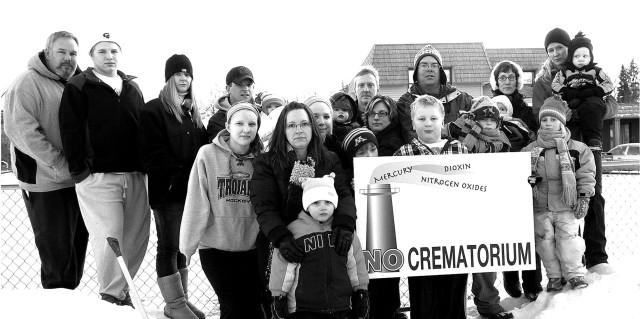
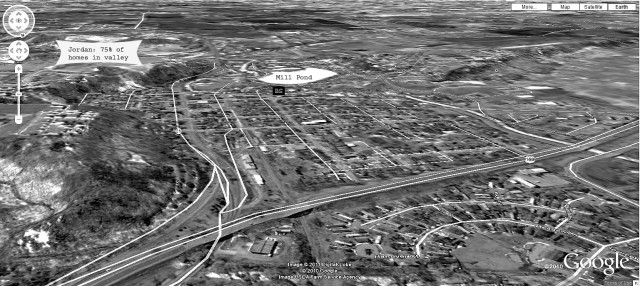
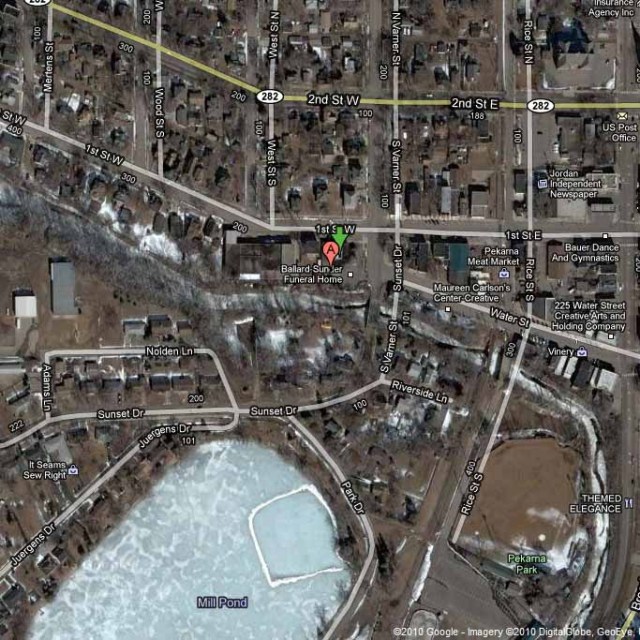
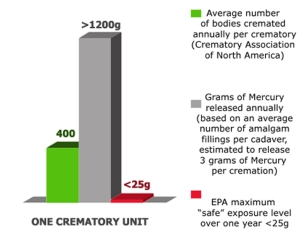

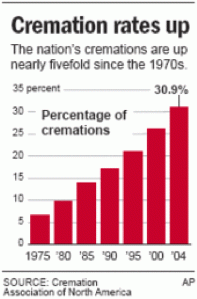
You must be logged in to post a comment.